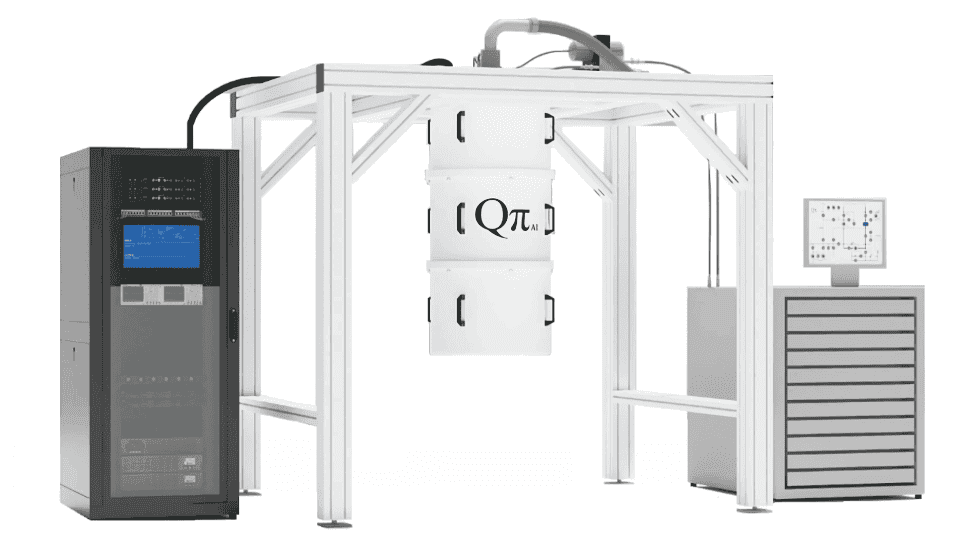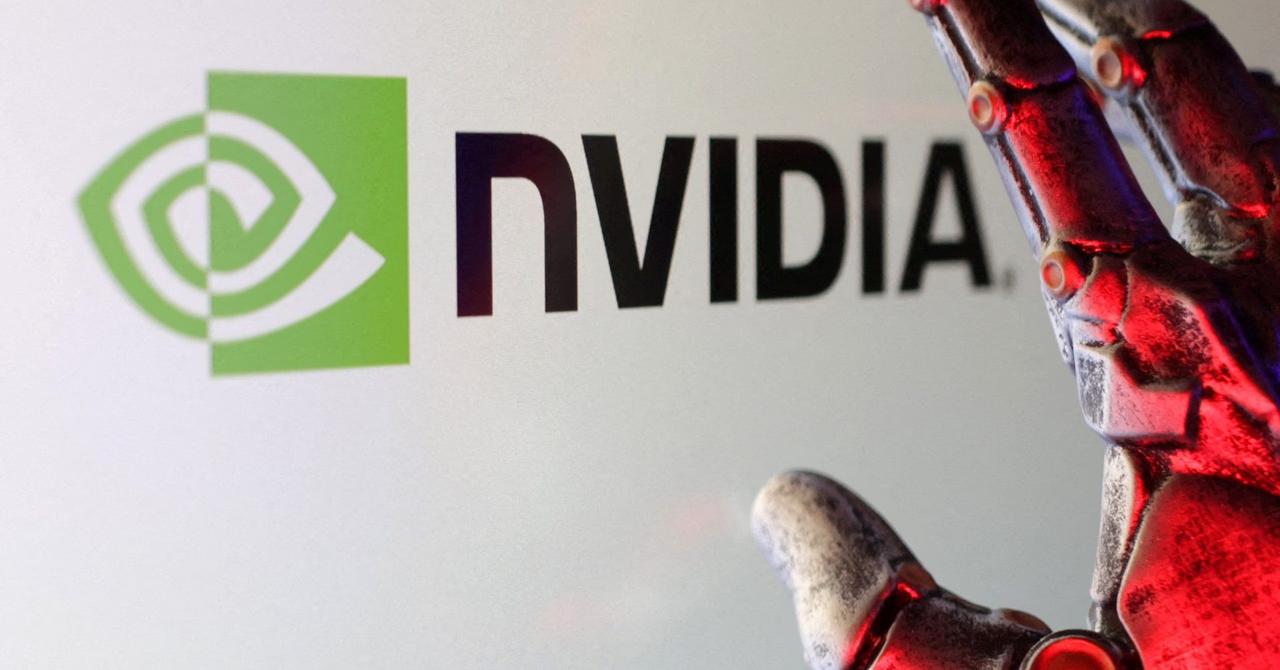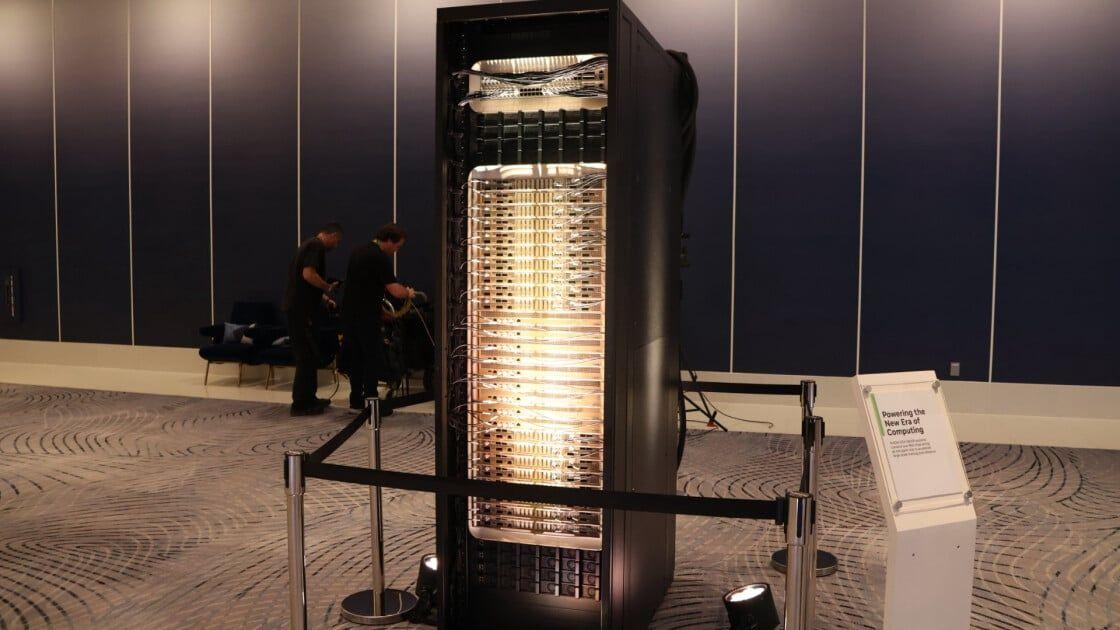Indian Startup QpiAI Secures $32M for Quantum-Powered AI Development
3 Sources
3 Sources
[1]
Indian startup QpiAI gets $32M to supercharge AI development with quantum computing - SiliconANGLE
Indian startup QpiAI gets $32M to supercharge AI development with quantum computing QpiAI India Pvt. Ltd. is looking to establish its home nation as a leading light in the field of quantum computing-based artificial intelligence after bagging $32 million in a Series A round of funding. Today's round was led by Avataar Ventures and saw participation from the Indian Department of Science and Technology's National Quantum Mission, which is an initiative that aims to increase the country's relevance in the nascent quantum computing industry. Bangalore-based QpiAI wants to leverage the unique computational power of quantum computers to develop more sophisticated AI models and algorithms, and is focused on areas such as finance, logistics, healthcare and materials science. To date, it has already developed a 25-qubit quantum computer, called QpiAI Indus, which can theoretically be scaled to more than 300 qubits by clustering multiple machines together. The startup says its system is built using superconducting qubits stored at sub-zero temperatures, which allows them to exhibit long coherence times, reducing the number of errors - which is a problem that plagues the quantum industry. Qubits are the key to quantum computing. They're like the "bits" found in traditional computers, but whereas the latter can only be a one or a zero, qubits can be a one, zero or both at the same time. This unique capability means they can process vastly more complex calculations, and do at speeds much faster than classical computers can ever hope to achieve. QpiAI Indus is accessible to customers as a cloud service, and provides AI developers with a quantum-capable platform that's combined with classical computers to perform much faster simulations and process data at unprecedented speeds. With these capabilities, it can dramatically accelerate the speed of research in areas like drug discovery and supply chain optimization. The company is led by its founder and Chief Executive Nagendra Nagaraja, and is staffed by more than two dozen Ph.D.s from top universities in the U.S., Europe and India. The company has published an ambitious roadmap, with plans to scale its QpiAI computer from 25 to 64 qubits by the end of the year, then 128 qubits in 2027, and finally 1,000 by the end of 2028. Nagaraja said the company has already seen impressive traction in its effort to commercialize Noisy Intermediate State Quantum computers in fields such as education and algorithmic prototyping. "The markets are ripe for utility-scale quantum computers with logical qubits, and we're leading efforts towards building these powerful systems," he said. QpiAI will use the funds from today's round to accelerate the delivery of its quantum computers and expand its services globally, Nagaraja continued. In addition to building its machines and pursuing its commercial ambitions, QpiAI is also trying to position itself as a leader in education. It's aiming to foster a new generation of Indian quantum computing experts, primarily by providing its research and tools to various academic institutions across the country. That explains the interest of India's National Quantum Mission and its decision to back the company to the tune of millions of dollars. NQM Chairman Ajai Chowdhry said QpiAI is playing a crucial role in fostering the country's nascent quantum industry, which is seen as ripe for disruption. "We plan to continue to support home-grown product companies like QpiAI to help them expand into large enterprises and position India as a global leader in quantum technologies," he said. Whereas most technology industries seem to be dominated by U.S. companies, and increasingly, Chinese firms, the quantum sector has given birth to dozens of promising startups from far-flung nations, ranging from Austria to Australia to France to Spain and Japan. It's a truly global industry that's ripe with potential, for many believe that quantum machines may one day far surpass the capabilities of traditional computers. And if that happens, there could be billions if not trillions of dollars up for grabs. "We plan to continue to support home-grown product companies like QpiAI to help them expand into large enterprises and position India as a global leader in quantum technologies," he said. Avataar Ventures Managing Partner Mohan Kumar expressed this viewpoint, saying that he believes quantum computers can "advance mankind beyond imagination," and he believes that India is well placed to make it happen. In particular, he thinks QpiAI is well on the way to becoming a leader in quantum for emerging markets. "QpiAI has demonstrated strong technical and commercial leadership with its functional quantum computing technology and real-world applications at large automotive and life sciences customers," he added.
[2]
Bengaluru-based QpiAI raises $32 million by Avataar Ventures and NQM
QpiAI, an integrated AI and quantum solutions company based in Bengaluru, secured $32 million in funding led by Avataar Ventures and the National Quantum Mission. This investment will enable QpiAI to enhance its quantum computers, targeting industries like agriculture and drug discovery. Bengaluru-based QpiAI, a company specialising in integrated AI and quantum solutions, has raised $32 million in funding. Avataar Ventures and the National Quantum Mission (NQM) led the investment round, with participation from new and existing investors, a TOI report stated. The funding will help QpiAI build more powerful and reliable quantum computers. The company aims to create quantum computers that can solve complex problems in industries like agriculture, drug discovery, and manufacturing. Founded in 2019, QpiAI combines quantum computing and artificial intelligence to address difficult challenges across various sectors. They offer software platforms designed for specific industries, improving simulation, optimization, and data analysis. QpiAI has developed a quantum computer with its own hardware and software, which it uses to create quantum applications for materials science and drug discovery. Dr. Nagendra Nagaraja, the founder of QpiAI, has 25 years of experience in the tech industry, including time at Nvidia and Qualcomm. He recognized the potential of quantum computing to overcome the limitations of traditional computing methods. Dr. Nagaraja said they created "India's most powerful quantum computer with 25 qubits and a roadmap to scale up to 1,000 qubits by 2030." QpiAI plans to increase its workforce to 200-250 employees and is working to launch a 64-qubit machine by late next year. The company is also focused on developing error-corrected logical qubits, which are necessary for commercial applications. Mohan Kumar, managing partner at Avataar Ventures, said, "We believe quantum has the potential to advance mankind beyond imagination, and India has a unique opportunity to lead this frontier technology. QpiAI demonstrated strong technical and commercial leadership with its functional quantum computing technology and real-world applications at large automotive and life sciences customers. They are on a path to lead the quantum wave for emerging markets with its advanced full-stack technology."
[3]
QpiAI: India's quantum leap from Bangalore to the world
QpiAI's roadmap includes 1,000-qubit Everest computer, aiming for quantum supremacy by 2030 In the tech haven that is Bangalore, a quiet revolution is underway. At the heart of it stands QpiAI, a homegrown quantum computing startup that is fast becoming a symbol of India's ambition to lead the next technological frontier. Founded in 2019 by quantum physicist Dr. Nagendra Nagaraja, QpiAI blends quantum computing, artificial intelligence (AI), and high-performance computing (HPC) into a formidable engine of innovation. In July 2025, it secured a landmark $32 million Series A funding round, co-led by the Indian government's National Quantum Mission (NQM) and Avataar Ventures, valuing the company at $162 million and cementing its role as India's quantum vanguard. Also read: Building Starling: IBM's fault-tolerant quantum computer coming in 2029 From the outset, QpiAI pursued a full-stack approach, developing everything from superconducting qubit hardware to hybrid quantum-AI software. Its mission: to build machines capable of solving real-world problems beyond the reach of classical computers. The early years were a flurry of research, partnerships with IBM and TCS, and small but strategic victories in supply chain optimization, pharma R&D, and materials design. The defining moment came on World Quantum Day 2025, when QpiAI unveiled QpiAI-Indus, India's first full-stack quantum computer. Featuring 25 superconducting qubits with gate fidelities nearing global benchmarks, the system marked India's formal entry into the global quantum elite. It wasn't just a prototype, it was a working machine aimed at applications in drug discovery, logistics, materials science, and climate modeling. Yet, QpiAI isn't stopping there. Its roadmap includes a 64-qubit system (Kaveri) in 2026, followed by Ganges (128 qubits) and Everest (1,000 qubits) by 2028. The goal? To reach 100 logical qubits, the foundation for fault-tolerant quantum computing by 2030. If achieved, it would put India on par with the world's most advanced quantum nations. Also read: Quantum computing's next leap: How distributed systems are breaking scalability barriers This meteoric rise is intertwined with India's National Quantum Mission, launched in 2023 with a budget of $750 million. The mission envisions not just scalable quantum processors but also quantum communication satellites, quantum key distribution networks, sensors, and new-age materials. As one of eight startups selected under the mission, QpiAI received a $3.5 million grant and a mandate to help realize India's technological self-reliance. What sets QpiAI apart globally is its seamless integration of AI and quantum computing. Its proprietary QpiAI Qubits architecture currently boasts coherence times of 30 μs (T1) and 25 μs (T2), with plans to hit 100 μs in 2026. Its software suite, ranging from QpiAI-Pharma to QpiAI-Matter, uses hybrid algorithms to deliver practical quantum solutions, while the QpiAI-SaaS platform makes this power accessible to enterprises. With 11 patents and consistent gross margins of 60%, the company has built not just intellectual capital but financial muscle, with an IPO planned for 2026 or 2027. Still, the path is anything but easy. India's dependence on imported cryogenic components poses supply chain challenges. QpiAI has responded by assembling 80% of its systems in-house and planning local manufacturing by 2026. The shortage of quantum talent is another roadblock. Of its 100 employees, only 25 hold PhDs. To address this, QpiAI launched a Quantum Academy, training India's next generation of quantum engineers, part of its broader effort to build a homegrown talent pipeline. Looking ahead, the $32 million raised in 2025 will help QpiAI expand into Singapore and the Middle East, scale operations, and accelerate its march toward fault-tolerant computing. In an era where the global quantum market is projected to surpass $7 billion by 2030, QpiAI is well positioned to make India a key player. "QpiAI is a shining example of India's potential to lead in quantum technologies," said Ajai Chowdhry, chairman of the NQM. "Their work is not just about building machines, it's about building a future." As QpiAI takes bold strides into the future, it is proving that India's aspirations in quantum computing are no longer distant dreams, they're qubits coming to life, from Bangalore to the world.
Share
Share
Copy Link
QpiAI, an Indian quantum computing startup, has raised $32 million in Series A funding to advance its quantum-AI integration efforts and expand globally.
Quantum Computing Breakthrough in India
Bangalore-based startup QpiAI has secured $32 million in Series A funding to advance its quantum computing-based artificial intelligence development
1
2
. The funding round was led by Avataar Ventures and included participation from the Indian Department of Science and Technology's National Quantum Mission (NQM)1
.QpiAI's Quantum Technology

Source: SiliconANGLE
QpiAI has developed a 25-qubit quantum computer called QpiAI Indus, which can theoretically be scaled to over 300 qubits by clustering multiple machines
1
. The system uses superconducting qubits stored at sub-zero temperatures, allowing for longer coherence times and reduced errors1
. QpiAI's proprietary Qubits architecture currently boasts coherence times of 30 μs (T1) and 25 μs (T2), with plans to reach 100 μs in 20263
.Ambitious Roadmap and Applications
The company has outlined an ambitious roadmap for scaling its quantum computers:
- 64 qubits by the end of 2025
- 128 qubits in 2027
- 1,000 qubits by the end of 2028
1
3
QpiAI's quantum-AI integration targets various industries, including finance, logistics, healthcare, and materials science
1
. The company offers software platforms designed for specific sectors, improving simulation, optimization, and data analysis2
.Global Expansion and Commercialization
With the new funding, QpiAI plans to accelerate the delivery of its quantum computers and expand its services globally
1
. The company is also focusing on commercializing Noisy Intermediate State Quantum computers in fields such as education and algorithmic prototyping1
.India's Quantum Ambitions
QpiAI's success is closely tied to India's National Quantum Mission, launched in 2023 with a $750 million budget
3
. The mission aims to develop scalable quantum processors, quantum communication satellites, and quantum key distribution networks3
. As one of eight startups selected under the mission, QpiAI received a $3.5 million grant3
.Related Stories
Challenges and Solutions
Despite its progress, QpiAI faces challenges such as dependence on imported cryogenic components and a shortage of quantum talent
3
. The company is addressing these issues by:- Planning to assemble 80% of its systems in-house by 2026
3
- Launching a Quantum Academy to train India's next generation of quantum engineers
3
Future Prospects

Source: Digit
QpiAI's recent funding will help the company expand into Singapore and the Middle East, scale operations, and accelerate its progress toward fault-tolerant computing
3
. With the global quantum market projected to surpass $7 billion by 2030, QpiAI is positioning itself and India as key players in the quantum computing landscape3
.
Source: ET
As Dr. Nagendra Nagaraja, QpiAI's founder and CEO, stated, "The markets are ripe for utility-scale quantum computers with logical qubits, and we're leading efforts towards building these powerful systems"
1
. This development marks a significant step in India's journey to become a global leader in quantum technologies and AI integration.References
Summarized by
Navi
[1]
Related Stories
L&T-Cloudfiniti and QpiAI Partner to Advance Quantum Computing Solutions Across Industries
16 May 2025•Technology

Strategic Partnership Aims to Advance Quantum Technology in India
13 Aug 2024

SandboxAQ Raises $450 Million in Series E, Backed by Google and Nvidia for Quantum AI Development
04 Apr 2025•Technology

Recent Highlights
1
Elon Musk merges SpaceX with xAI, plans 1 million satellites to power orbital data centers
Business and Economy

2
French Police Raid X Office as Grok Investigation Expands to Include Holocaust Denial Claims
Policy and Regulation

3
UK launches formal probe into xAI as Grok continues generating sexualized images without consent
Policy and Regulation





